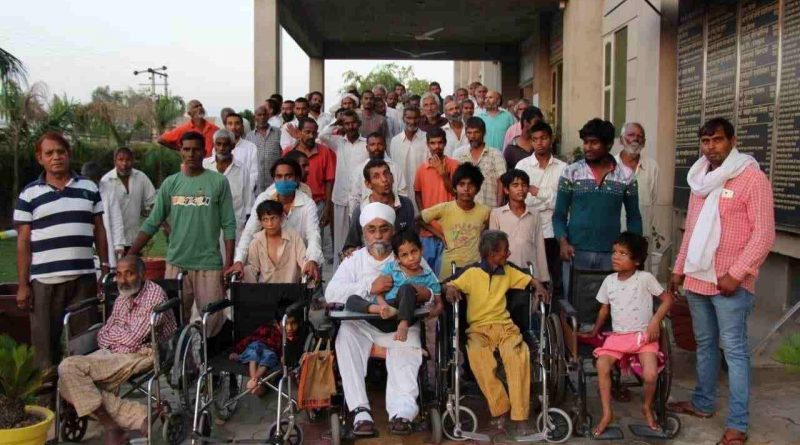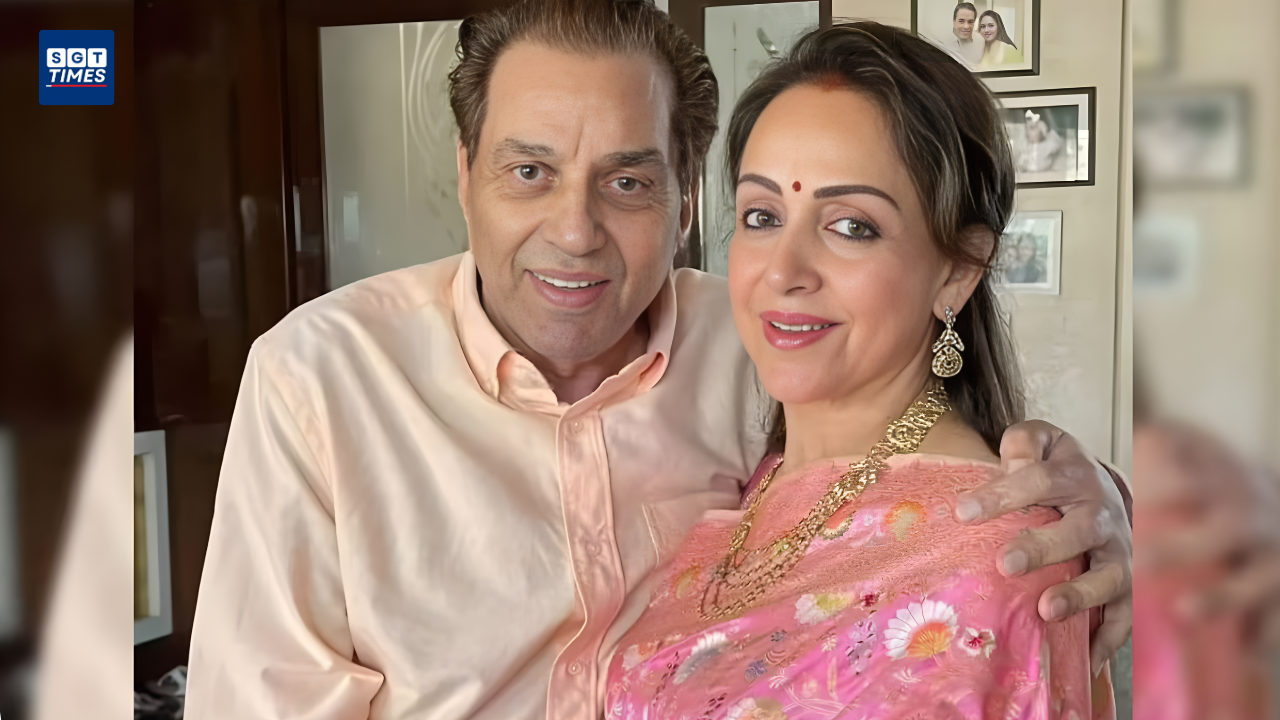A Steady Stream
Dr Ganesan Jagadeesan
Gurvinder Singh was in his signature crisp white kurta, a neatly tied white turban, and a well-trimmed beard. He set up a small business repairing agricultural implements in the mid-1990s. It was a perfect choice, and business was good since his town Sirsa in the Northern Indian state of Haryana, was lush in agriculture. A devout Sikh, he would regularly volunteer at the local Gurudwara1 to serve in the Langar2 or help with the cleaning and gardening. Despite humble resources, Gurvinder was always the giver, never the taker.
This was until the fateful day in 1997 when Gurvinder was hit by a speeding truck. He lay on the road slipping in and out of consciousness, waiting unsuccessfully for the ambulance to arrive. Blood-red took over his otherwise white attire. The accident crushed the spinal cord and paralyzed him waist down, rendering him immobile and confined to a wheelchair. However, Gurvinder’s resolve was much too strong to be crushed by a mere road accident. He would still be the giver, but now at a scale that the town of Sirsa had rarely witnessed.
Gurvinder’s agonizing path to recovery has inspired many for his sheer grit. Gurvinder recollects, “the mental agony was unbearable, much more than the physical pain. I was angry at everything, and my mind was like the raging rapids.”. The smell of blood, antiseptics, soaps and cleaners made him sick as he was treated in different hospitals for the next four years. It seemed life was slipping away beneath his feet, unmindful that he had just begun his journey. He wanted to scream that he was not done… Yet!
Gurvinder recounts making peace with the wheelchair as his body healed. Despite that, his mind was still like the rapids, foaming and turbulent. The freezing winter night of 15th December 2004 is etched in Gurvinder’s memory as one that changed this. He saw a homeless man shivering and curled up near his workshop. Realizing that the man might not survive the night, Gurvinder took him to the emergency room of the Civil Hospital. Gurvinder’s voice chokes as he remembers the faint smile and the tear that jerked from the man’s eyes as he was moved to intensive care. “All my anger was washed away in that single drop of tear,” recalls Gurvinder.
The Civil Hospital at Sirsa caters to the underprivileged, most of those who cannot even afford a decent meal. Aware of this, Gurvinder starts with the daily free bread and milk service to needy patients. Given his financial condition, the costs and logistics are challenging. But that does not deter him as he believes in the nobility of the cause and leaves the rest to the almighty. True to his conviction, he found the money and the workforce to embark upon his mission. Gurvinder was just getting started.
The town of Sirsa lacked ambulance services to cater to road accident victims during that time. Driven by personal motivation, Gurvinder endeavored to start one. “I thought it wouldn’t work and was plain wishful thinking,” says Sanjiv Jain, a prominent lawyer and tax consultant in Sirsa, recalling his first meeting with Gurvinder. Sanjiv thought Gurvinder was delusional as he spoke about his grand plans to open a home for the destitute. “The man was insistent and wouldn’t stop. But I sensed an urge in his voice and a demeanor that was raring to go. It seemed as if the wheelchair did not exist. I decided to help him with the paperwork to register a Charitable Trust,” Sanjiv says. Little did Sanjiv realize that he would be drawn so much to their cause within a few years that he would become a patron of the Trust and even donate land.
The Bhai Kanhaiya Manav Sewa Trust thus came into being in 2005. Named after the 17th-century saintly figure3, the trust took upon itself a vow of selfless service. Gurvinder Singh started operating three ambulances within a year and saved the lives of hundreds of road accident victims. The ambulances grew as the donations began trickling in. Still, Gurvinder felt a deep void as he saw homeless men and women lining the streets of Sirsa.
Gurcharan Singh Kalra, an agriculturist from Sirsa, cites his visits to the home of the destitute at Amritsar, Punjab, as the motivation behind donating land to the Bhai Kanhaiya Trust. He has no qualms about his donation and considers it his duty under Dasvandh4. With an additional donation from Sanjiv Jain, the Trust established the Bhai Kanhaiya Ashram (home) for destitute and mentally challenged women in 2011. “My mind was no more like the rapids; instead, it had become a steady stream,” says Gurvinder.
Within months, the Ashram had 60 residents, which has grown to 355 today. I visited the Ashram during my stint as the District Magistrate in 2012-13. The poster at the entrance immediately caught my eye. It had depressing images of women, disheveled and covered in rags. The date and place of rescue were mentioned against each of them, while one detail was conspicuous by its absence…their names. None could remember them. I then saw Gurvinder as he moved across the Ashram in his wheelchair, smiling and greeting people with a Satsiriakal5. He took me around to meet the residents. My hands folded in respect as I met clean, smiling, and healthy faces who told me their names.
I spoke to Kulbhushan Saravgi, a businessman who helped the Ashram move to a spacious location through his generous contribution. He tells the story of Vedavati, a helpless woman who strayed from her home in Kolar, a town 2000 km from Sirsa, and found her way to the Ashram. While her family gave her up as dead, Gurvinder helped her recuperate for three years and reunite with her family. Saravgi says this commitment of Gurvinder attracts donors like him to the Ashram. Vedavati’s brother Praveen often pausing to compose himself on the telephone as he expresses his gratitude to Gurvinder.
“It was God in Gurvinder’s form that saved my father,” says Vinod Rawal, a chartered accountant, as his eyes become moist. His father, Ram Swaroop Rawal, an elderly gentleman from New Delhi, has Alzheimer’s. On the 11th of January 2015, he walked from his home and lost his way back. He only remembered that he was born in Sirsa, prompting some locals to help him board a bus. He was still lost at the end of the 300 km journey to Sirsa. Some volunteers spotted him and brought him to the Ashram. Vinod recounts the harrowing experience. “We spent sleepless nights and tried everything to trace my father,” He was pleasantly surprised when a photo of his father and contact details of the Ashram emerged on a social media platform two days later. Vinod feels it is divine intervention that got his father back.
Gurvinder continues with his journey unperturbed, like a steady stream. He couldn’t have known that the accident that wounded him would heal the lives of so many others.
(The writer is an officer of the Indian Administrative Service (Haryana). He is currently a Graduate student pursuing the Master in Public Administration program at Harvard Kennedy School, Harvard University, U.S.A. Views expressed are personal)



